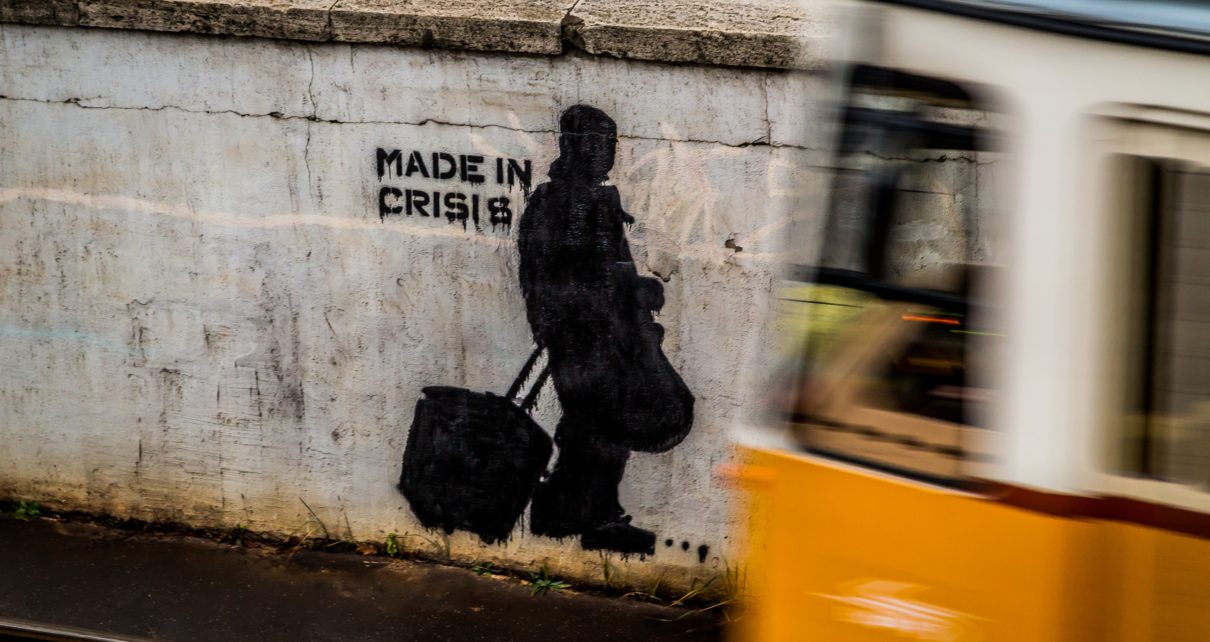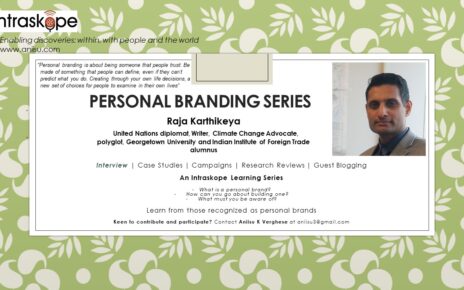First published on Business World (May 19, 2020): http://www.businessworld.in/article/The-6Ps-of-Personal-Branding-During-COVID-19/18-05-2020-192364/
What is changing in our world with COVID-19? How can we stay relevant? In what ways can we contribute as individuals and personal brands?
These and other questions maybe on your mind as you experience what the world faces currently. While there is hope that we will come out on the other side safer and stronger, what you do in the near-term is within your control. We all have a crucial role to play as employees, community change agents and in our own personal ways. By understanding the situation better, appreciating the risks and opportunities and doing our bit on digital media and beyond, we can make a difference.
Let’s begin by understanding the trends shaping our world currently, the challenges from COVID-19 and approaches to manage our personal and professional selves – in essence, our personal brands. To understand how personal brands must react and proactively engage, we can review what brands are doing to communicate with consumers.
Look at these statistics:
- Jobs and therapy ranked the highest search terms in India between 22 March – 22 April on Google.
- 85% of Chinese consumers reported an increase of at-home screen usage during the crisis (Ogilvy, 2020)
- 91% of Indians wash their hands more often than before (Kantar, COVID1-9 Barometer, 2020)
- Between Feb and March 2020, brands’ CPC (cost per click) decreased by 30.8% (SocialBakers, 2020)
- In many of the countries hit hardest by the virus, total messaging has increased more than 50% in March over February 2020. (Facebook)
When the pandemic began to gain momentum, there were a few behavioral shifts that took place and measures brands took to align to the current expectations. Brands were quick to realize that people needed reassurance, investment in relationships and affirmation on new social norms. Citizens were bulk-buying, seeking low-contact commerce and wanted to avoid groups. Globally, household incomes are impacted causing stress and working remotely became an expectation while mental wellness and job security were top of mind. The focus is on ‘local’ to avoid infections, the emphasis on quality and usage of technology to overcome social distancing and other expectations. Some companies even proposed an ‘employee sharing’ initiative to whether the storm.
On social media, key words like Coronavirus, Frontline service support, WFH company complaints, Cybersecurity risks, Home working tips, collaboration and Home office set-up trended. Employees felt their lives were significantly disrupted and looked to organizations to provide clarity on actions related to COVID-19. Most people shifted from work to consuming content, news, personal pursuits and social media and optimism is returning to some parts of the world of a recovery. It is important to note that stakeholders’ perceptions and perspectives vary – employees prefer information on wellbeing and financial health, customers are trying to stay afloat, companies are re-evaluating their strategies and the community is expecting empathy more than ever.
More than ever, consumers are challenging companies to look deep within and live the values to the core. This pandemic is an acid test for organizations to align what they say with what they do. Any deviation is a clear violation and consumers are watching every move. Must brands go silent and wait till this situation gets better? Or do they go overboard and make the most of the situation?
These questions are like what each of us face as personal brands? We are already visible in our own right on channels such as Facebook, Linkedin, Twitter and Instagram and every move we make it noticed.
Brands that have engaged proactively on social media during the situation have been respected for stepping in whatever way they could. Coronavirus posts by companies that used words such as ‘help’, ‘health’, ‘support’ and ‘take-care’ got the most engagement on Linkedin, for example.
What lessons can personal brands get from these insights?
Pause and plan
Knowing that social media can influence social and political opinions, it is important to know the role you play as a personal brand during crises like what we currently face. Be responsible and accurate in what you want to portray. With misinformation rampant and fake news on the rise, your duty to due diligence of content you receive before forwarding it on matters. Profiteering during this time is frowned upon and governments have made attempts to book brands that don’t comply. Empathy is what people expect. What is expected are plans to make the community safer and ideas that help people, with and without disabilities to cope with the crisis – see example of an Indonesian woman who made clear face masks for the hearing impaired.
Pivot and pursue
Brands that recognize that this is a time to reinvent and revisit their existence stand to benefit in the long run. Lots of universities have begun sharing their courses online, museums are now virtual and health and wellness apps are offering free services. As personal brands you can play multiple roles – as cheerleader, citizen, scientist, leader, nurturer and soldier. For example, as a ‘cheerleader’, you can rally people and make them feel positive despite the situation. Likewise, as a ‘scientist’, you can consider innovative ways of supporting the community. A few organizations have come together to make communities safer (like Sanofi-GSK’s partnership on an adjunct vaccine) or support people impacted (like Accenture-Verizon and others on a platform to connect businesses) or as individuals – this Lego employee created a cartoon feature to educate children on health and safety. Here is my way of giving back – sharing COVID-19 volunteering and funding opportunities.
Pitch and propagate
Globally, messaging has increased exponentially with about 87% of the world’s smartphone population using chat messages and 100 billion messages exchanged just on Facebook’s products each day, there are opportunities to get the good word around. The ‘average’ citizen is now the most important and influential type of activist especially with political, social and change oriented subjects. There are numerous ways to pitch and propagate messages. Be it your local government’s campaigns (in India, you can sign-up as a volunteer), encouraging and celebrating positive collective behaviors or leading change. All of us have access to the same channels – not just online but also in our communities, be it the residential complexes or the spiritual or religious forums.
Be mindful
While going about this, be aware that there is participation inequality and not everyone is a content creator. Most online users are ‘lurkers’, about 9% are intermittent contributors and only 1% of users actively create original content. Likewise, be mindful of your organization’s and government’s guidelines on social media engagement. Some companies have stringent rules on what and how you can engage online and therefore be cognizant and check before you share and post. If your intentions are honest, you can’t go wrong.
In sum, you can be a positive influence as a personal brand during these uncertain times. Be aware of the trend shaping our world, the risks and opportunities it offers and how your strengths align with the need of the hour. Be authentic in your approach; you don’t need to go dark – just be mindful in your engagement knowing that you are blessed with the capabilities to do good for your circle of influence, which is more than you think it is. The world is watching and listening to how you present your best self. This can make or mar your personal brand.
Aniisu K. Verghese is an award-winning corporate communications and social responsibility practitioner with over 20 years of experience in leading multinational organizations. He is the author of Internal Communications – Insights, Practices and Models and is passionate about engaging communicators and students through workshops, speaking engagements, teaching assignments and blogging. Aniisu can be contacted on Linkedin and via e-mail at [email protected]. Views expressed are personal



